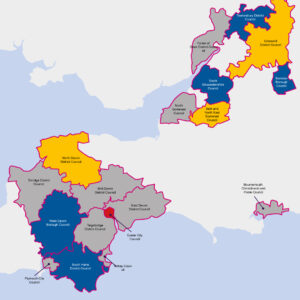Despite the decline in national print media circulations, national media – whether TV, radio, print or online – is still seen by organisations as a massive PR opportunity.
Here are seven tips on how to win over the national media and give your PR campaign a huge boost:
1 – Take an interest in what journalists are writing about or programmes they’re producing. Google reports and articles they’ve produced or see what they are saying on social. Reference relevant pieces that they’ve generated in any pitches you run by them.
2 – If you think your story has it all, offer it on an exclusive basis, particularly in today’s 24/7 media landscape where different channels compete to be the first to break news. But remember, your story has to really stand out if it is going to be sought after.
3 – Follow journalists on social media, particularly Twitter and LinkedIn. More often than not they will connect with you. Some journalists also put out requests for interviews and contributions for reports they are working on via their personal social media accounts.
4 – Don’t just send a press release to journalists which focuses on your brand and a couple of supporting quotes. Pitch in a story package, which not only presents an opportunity for your brand but offers up other third party interviewees and provides captivating facts for background. Think like a media newsroom. What content would bring your story to life and make it compelling? For example, your business might have conducted some interesting research into the state of the high street. Line up and offer perspectives from retailers, a relevant trade association, property developers and landlords. We recently launched the world’s first wireless and in-heart microcomputer for a client, which dramatically improves the quality of life to people living with heart failure. We didn’t just sell-in as a product innovation but worked with a leading hospital to carry out the first implant and lined up interviews with the cardiologist performing the procedure as well as the patient. We also provided data that showed that the number of people dying from heart and circulatory diseases before the age of 75 was rising for the first time in 50 years to give the story added currency.
5 – Understand how a journalist prefers to be communicated with – one of the leading media database providers will be able to provide this information. Some will prefer a phone call, others an initial pitch by email or some via social media.
6 – Do some hard grafting for national journalists – analyse relevant data that your industry or the government generates and identify storylines that are hidden away. Journalists don’t always have the time to scrutinise such information and you can leverage for your own benefit. The Office of National Statistics and Census information are great datasets to plough through to find media angles for your organisation. For our client, the UK Vaping Industry Association, we recently identified new statistics from the NHS which showed that youth uptake of vaping had not increased since 2016. We drew upon these statistics to gain an interview on BBC’s The One Show for our client.
7 – Once you’ve had success with a national media journalist, producer or planner, keep in touch and become their ally by feeding them new ideas for stories. A good PR, who sells great stories rather than their brands, is worth their weight in gold to under resourced and under pressure 24/7 media channels.


